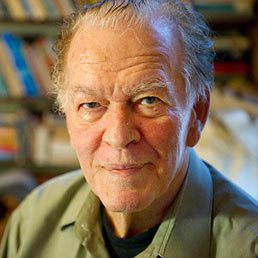 Gene Sharp, a pioneering scholar in the field of civil resistance, died Sunday at his home in Boston. He was 90. Dr. Sharp’s seminal work, “The Politics of Nonviolent Action,” identified 198 tactics of civil resistance and, since its publication in 1973, has been a lodestar for activists, academics, policymakers and nongovernmental organizations. Both Peter Ackerman, founder of the International Center on Nonviolent Conflict (ICNC), and Hardy Merriman, President of ICNC, worked closely with Dr. Sharp.
Gene Sharp, a pioneering scholar in the field of civil resistance, died Sunday at his home in Boston. He was 90. Dr. Sharp’s seminal work, “The Politics of Nonviolent Action,” identified 198 tactics of civil resistance and, since its publication in 1973, has been a lodestar for activists, academics, policymakers and nongovernmental organizations. Both Peter Ackerman, founder of the International Center on Nonviolent Conflict (ICNC), and Hardy Merriman, President of ICNC, worked closely with Dr. Sharp.
From Peter Ackerman
I began my relationship with Gene as his doctoral student, and over the years he became a dear colleague and friend. In the 40 years that I’ve been committed to advancing humanity’s understanding of nonviolent civil resistance, Gene Sharp’s ideas have been salient to that work every day.
From Hardy Merriman
Gandhi saw nonviolent civil resistance as a series of “experiments” to be investigated and analyzed through scientific inquiry. Gene Sharp took this concept and applied it to civil resistance movements around the world, discerning a social science, and an academic discipline, to explain how these movements work, and why they succeed or fail. Through decades of research and publishing, he established key concepts, terms, and theories in a little-known field that has grown and now flourishes. His work didn’t just touch scholarship—it also reached practitioners, influencing thousands of dissidents around the world. His impact will continue into the future, and humanity’s course is better as a result.